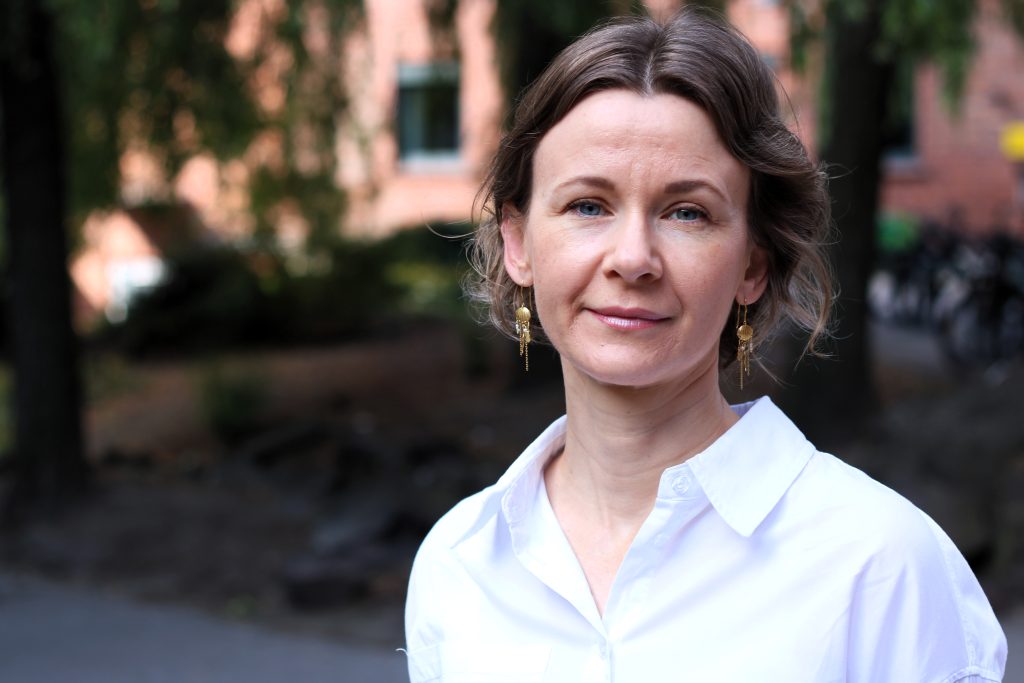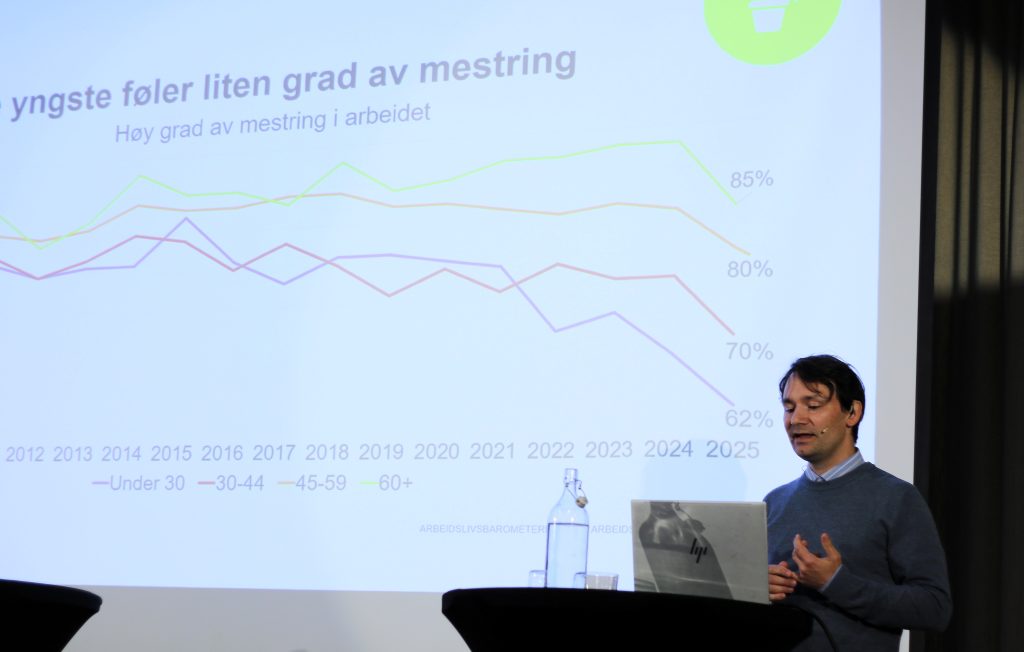The YS trade union’s Working Life Barometer (Arbeidslivsbarometeret) is an annual survey examining the state of Norwegian working life. First published in 2009, this year’s survey looks in detail at sickness absence.
Researchers Karl Ingar Kittelsen Røberg and Karoline Brobakke Seglem at the Norwegian Work Research Institute (AFI) at OsloMet presented the survey results during a seminar at the political and societal gathering Arendalsuka on 12 August.
YS Working Life Barometer from 2009 to date
The Working Life Barometer (Arbeidslivsbarometeret) is an annual survey of Norwegian working life conditions conducted by the Norwegian Work Environment Institute (AFI – OsloMet) on commission from the trade union confederation Yrkesorganisasjonenes Sentralforbund (YS).
The survey has been carried out annually since 2009.
Just over 3,000 workers participate in the survey.
The surveys from 2009 to date are available online (in Norwegian)
YS Working Life Barometer is built around six themes which are all central to understanding developments in working life from the workers’ perspective:
- The legitimacy of trade unions
- Support for collective wage formation
- Working conditions, stress and mastery
- Equal participation
- Security and attachment in working life
- Skills
In this year’s barometer, the AFI researchers have tried to gather more knowledge about where and among whom there is the most potential to reduce sickness absence levels, and what is needed to succeed.

“Because the big question is how do we reduce sickness absence in Norway today? We have also asked young people what they believe must be done to reduce sick leave levels,” said AFI researcher Karoline Brobakke Seglem during the presentation.
Increasing sickness absence levels, especially among young workers, is a worry.
Worried about young men
Figures from Statistics Norway (SSB) show that sickness absence has increased significantly among people under 40 in recent years – especially among men in sectors such as construction.
Figures from AFI confirm this development.
Causes of sickess absence among men under 30
Overall, the researchers find that a larger proportion of younger men report all types of ailments and strains as contributing to their sickness absence, compared to other groups across gender and age.
“Young men’s experience of strain must be taken seriously,” underlines AFI researcher Seglem.
Health worries and lacking a sense of mastery at work
Around this time last year, AFI and YS presented the 2024 Working Life Barometer. Back then, the YS leader expressed concern about increasing dissatisfaction among young working people.
There is no noticeable improvement in this year’s barometer. Young workers continue to express growing concern about their own health and future work capacity. At the same time, fewer and fewer find meaning and a sense of mastery at work – a development that has intensified since the pandemic.
Younger groups stand out clearly, with lower satisfaction levels and a weaker confidence in their own working future:
- 22 per cent of workers under 30 fear their health will reduce their work capacity in the coming five years – more than twice as many as before the pandemic.
- 11 per cent of young people expect to become unable to work within the next five years, up 4 per cent from 2019.
- Even among those reporting good or very good health, 16 per cent believe that their health could still limit their work capacity.
- Only 62 per cent of workers under 30 experience a high degree of mastery at work, compared to 80 per cent before the pandemic – the lowest figure across all age groups.
- Young people are also those who experience the least sense of meaning and inspiration in their work.
This development worries both the researchers and the YS leader.
“We must ensure that young people have a safe and meaningful entry into working life, with guidance, accommodation and a work environment that gives them a sense of mastery,” says YS leader Hans-Erik Skjæggerud in a press release.
Young people talk about measures that work
So what do the workers themselves believe will have the largest effect on reducing sickness absence levels?
They particularly highlight reduced work pressure, health-promoting measures, improvements to the psychosocial work environment and stronger support from management.
Measures that young people say are key to reducing sickness absence
Women and men use AI differently
This year, for the first time, the AFI researchers introduced questions about artificial intelligence and its impact on workers’ working conditions.
The answers show that as many men as women work in companies that use AI, and both genders say the technology makes their tasks easier.
This is particularly true for workers with higher education and income. More young than older workers say using AI tools saves time.
“Although access to AI is equal for both genders, we see a clear gender divide in the way it is being used. Men use AI more for analysis and programming, while women use AI for language and creativity,” the report says.
“The introduction of AI in the workplace means the skills we have today soon could be outdated. It is also a clear signal to the individual employee that it is necessary to act to stay relevant in the labour market,” says YS leader Hans-Erik Skjæggerud.






